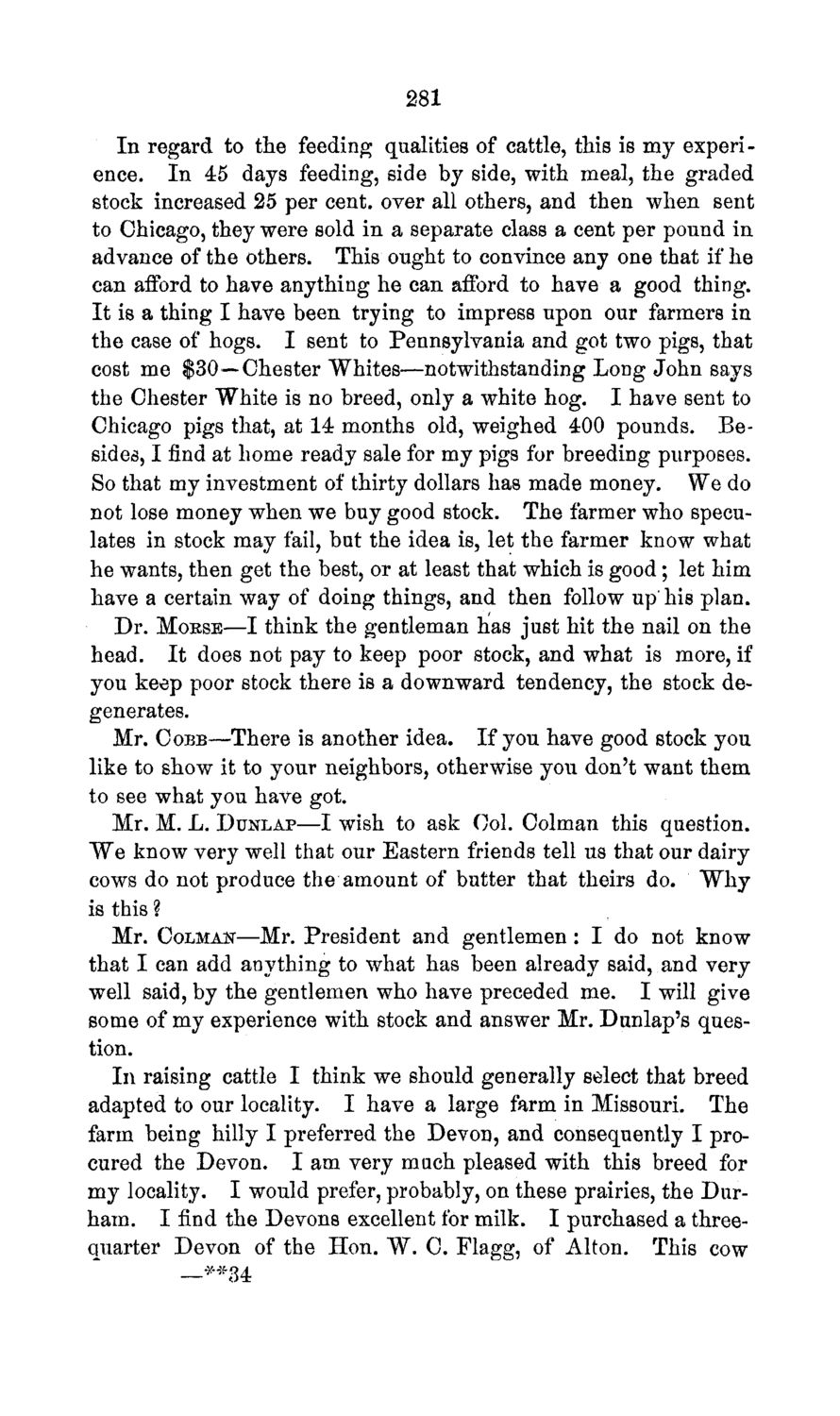| |
| |
Caption: Board of Trustees Minutes - 1869
This is a reduced-resolution page image for fast online browsing.

EXTRACTED TEXT FROM PAGE:
281 In regard to the feeding qualities of cattle, this is my experience. In 45 days feeding, side by side, with meal, the graded stock increased 25 per cent, over all others, and then when sent to Chicago, they were sold in a separate class a cent per pound in advance of the others. This ought to convince any one that if he can afford to have anything he can afford to have a good thing. I t is a thing I have been trying to impress upon our farmers in the case of hogs. I sent to Pennsylvania and got two pigs, that cost me $30—Chester Whites—notwithstanding Long John says the Chester White is no breed, only a white hog. I have sent to Chicago pigs that, at 14 months old, weighed 400 pounds. Besides, I find at home ready sale for my pigs for breeding purposes. So that my investment of thirty dollars has made money. We do not lose money when we buy good stock. The farmer who speculates in stock may fail, but the idea is, let the farmer know what he wants, then get the best, or at least that which is good; let him have a certain way of doing things, and then follow up his plan. Dr. MORSE—I think the gentleman has just hit the nail on the head. It does not pay to keep poor stock, and what is more, if you keep poor stock there is a downward tendency, the stock degenerates. Mr. COBB—There is another idea. If you have good stock you like to show it to your neighbors, otherwise you don't want them to see what you have got. Mr. M. L. DUNLAP—I wish to ask Col. Colman this question. W e know very well that our Eastern friends tell us that our dairy cows do not produce the amount of butter that theirs do. W h y is this ? Mr. COLMAK—Mr. President and gentlemen: I do not know that I can add anything to what has been already said, and very well said, by the gentlemen who have preceded me. I will give some of my experience with stock and answer Mr. Dunlap's question. In raising cattle I think we should generally select that breed adapted to our locality. I have a large farm in Missouri. The farm being hilly I preferred the Devon, and consequently I procured the Devon. I am very much pleased with this breed for my locality. I would prefer, probably, on these prairies, the Durham. I find the Devons excellent for milk. I purchased a threequarter Devon of the Hon. W. C. Flagg, of Alton. This cow
| |